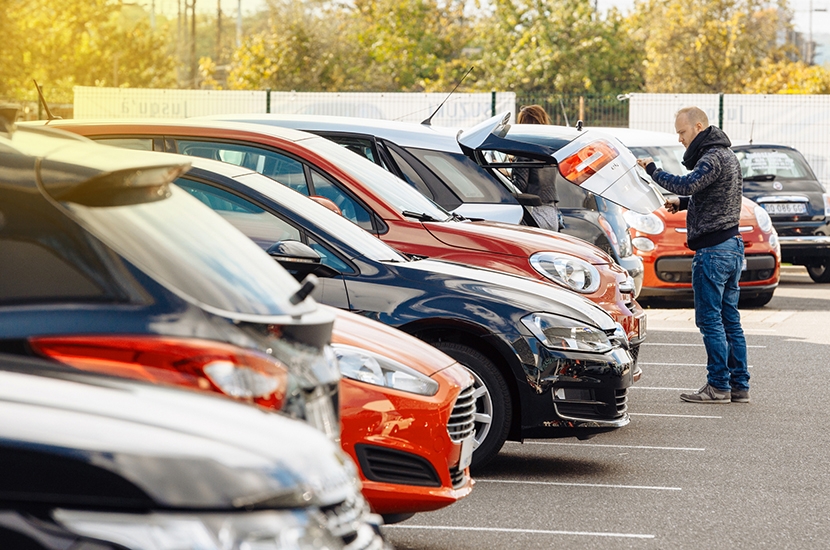Companies should willingly pay tax wherever they generate profits — this column has long argued — because it’s fair they should contribute to the cost of the public services on which all business ultimately relies, and because the reputation of capitalism as a whole is tainted when corporate tax bills are reduced to absurdly low levels by the use of offshore domiciles and spurious royalty payments that most governments lack the willpower to challenge. So I welcome at least one half of the G7 finance ministers’ agreement last weekend on a new global corporate tax regime.
The half I’m ready to praise is the proposal that all countries should have the right to tax some of the locally generated profits of the world’s largest multinationals. That would begin to address shameless tax–minimising practices deployed in the UK over the past decade by the likes of Amazon, Facebook and Starbucks.
The half I’m unpersuaded by is a global minimum corporate tax rate of 15 per cent. Reduced from President Biden’s ranging shot of 21 per cent and far below levels advocated by anti-capitalists such as Thomas Piketty, this hurdle, if ever agreed, would — most experts say — have the effect of raising significantly more revenue for the US Treasury but piffling sums over here, while making pariahs of the likes of Ireland that use low corporate taxes as a legitimate tool of economic development through inward investment.
In brief, there’s a long way to go and much refinement needed before this new tax pact makes the world a fairer and better place. But international co-operation is always and everywhere a good thing — and we should at least welcome America, the kingpin, back to the table.
Used-car disruptor
My man on the forecourt tells me the three-year-old Audi he sold me last year — a diesel automatic I call ‘the fat cruiser’ — is worth a couple of grand more than it was then, even with an extra 5,000 miles on the clock. The used car market is super-hot, he says, what with all that pent-up lockdown cash plus a global shortage of microchips restricting factory output of new models. Demand for secondhand diesels and SUVs is particularly strong, while electric and hybrid vehicles account for just 3 per cent of a market that’s clearly stuck in old-fashioned ways. But does that make Cazoo, the ubiquitous online used-car platform that sponsored last week’s Derby, a flash in the pandemic pan — or could it be the Ocado of this decade?
Launched 18 months ago by serial entrepreneur Alex Chesterman, whose previous ventures include LoveFilm and Zoopla, and backed by Daily Mail & General Trust among other canny investors, Cazoo claims to be ‘the fastest British business ever’ to have reached unicorn ($1 billion valuation) status, which it hit by mid-2020. Its latest move is a proposed merger with a listed New York-based ‘Spac’ called Ajax I which could boost its value north of £5 billion. All of which makes Cazoo the beau ideal of today’s capital markets without of course making it a profitable business model: it lost £19 million in its first year and reportedly now achieves a margin of just £143 per secondhand sale, with the added burden of a money-back guarantee if the buyer doesn’t like the car.
That’s about one-tenth of what big terrestrial dealerships make per car — and my man thinks the charm of buying from the laptop for home delivery could fade as punters shake off lockdown and return to the showrooms. But many consumer habits will have shifted permanently and Cazoo looks sufficiently well-funded, like Ocado, to become the long-term disruptor its sector was probably waiting for. We’ll just have to put up with those tiresome TV adverts.
Crypto space race
Curious news from crypto world. Ruffer, the London investment firm that has always been the very opposite of a follower of fashion — founder Jonathan Ruffer once told me he rarely talked to other professionals because doing so clouded the clarity of his own analysis — bought bitcoin in December as a ‘defensive’ alternative to gold and sold in April close to the all-time high, collecting a reported $1.1 billion profit.
And Tesla tycoon Elon Musk, whose every tweet sends crypto prices into a frenzy, announced a ‘mission to the moon’ funded entirely by dogecoin, an alternative currency that was originally a joke. If only Musk would follow his rocketry rival Jeff Bezos and announce that he’s sending himself into space, leaving the field to quieter operators such as Ruffer, these mad markets might begin to find sense and stability.
Tie pins and cufflinks
Poignant responses to my recent item on the demise of Searle & Co, the Royal Exchange jewellers. My great predecessor Christopher Fildes recalls ‘popping in for cufflinks over a period of about 50 years’. Another City veteran remembers visiting Searle ‘to replace gold wire hunting tie pins that I lost in the field’ — adding that the gold pin was in those days ‘almost de rigueur at the likes of Cazenove, Rowe & Pitman, Baring and Rothschild’ and reminding me of a passage from The Death of Gentlemanly Capitalism, Philip Augar’s finely observed account of the 1980s City: ‘Shoes (always black, never brown) were a good guide to what people did… lace-ups with leather soles and toe-caps or brogues: merchant banker or senior partner in broking or jobbing… Tasselled loafers: well-bred broker or American. Other useful signs were tie pins (small pin and chain connecting both parts of tie and shirt, analyst; 24-carat pin holding front of tie only, merchant banker) and cufflinks (gold oval discs, merchant banker or senior broker; swivel-backed, the rest).’
Now there are so few ties to be pinned, I’ll be glad to hear from readers who can explain the nuances of today’s City dress-down code.







Comments